The Cause: the birdwatching group that’s taking flight
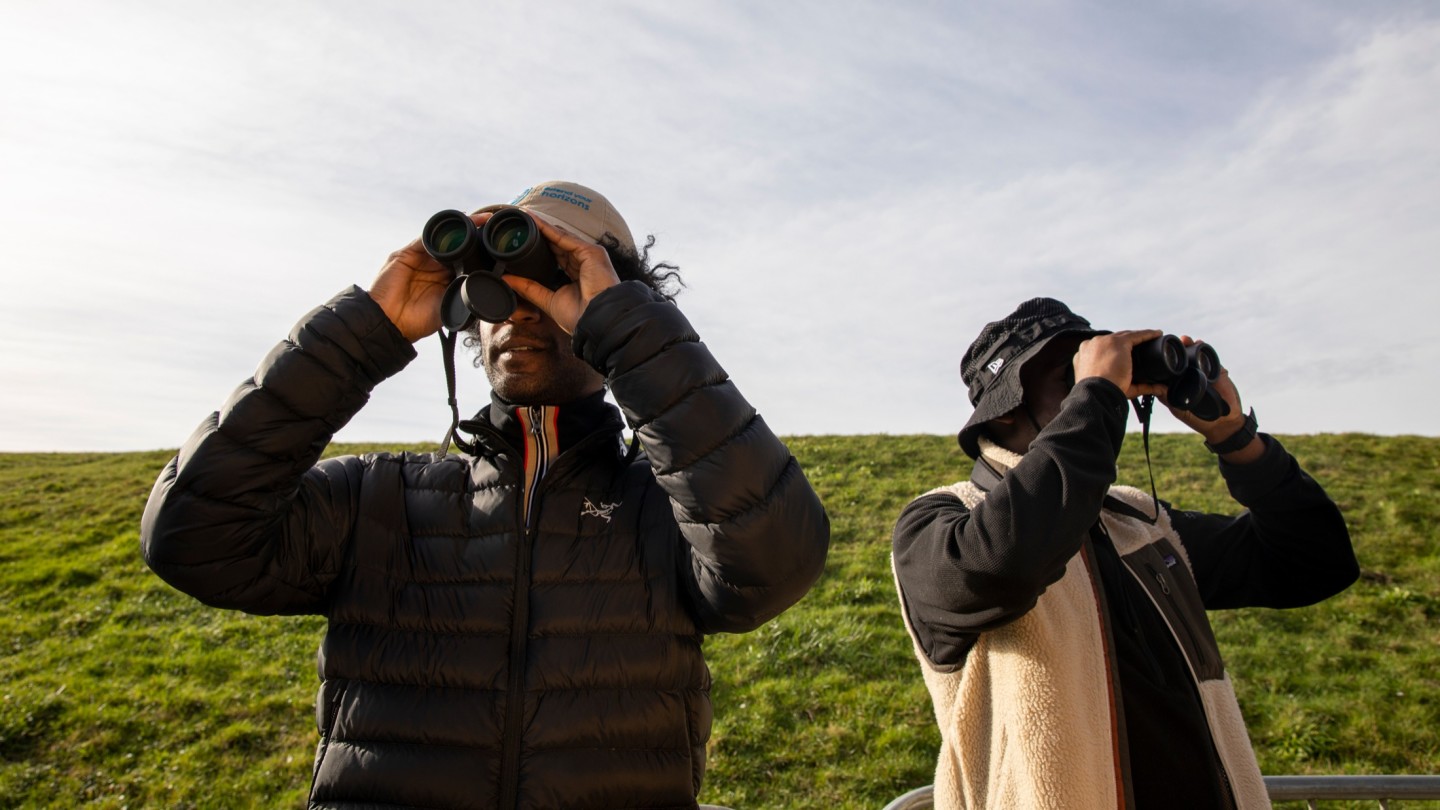
Roula Khalaf, Editor of the FT, selects her favourite stories in this weekly newsletter.
Ollie Olanipekun and Nadeem Perera are standing by the water’s edge in Walthamstow Wetlands, a 211-hectare nature reserve and reservoir in north London. It’s a balmy 22 degrees and the pair are dressed in utilitarian shorts, caps and sneakers. Slung around each of their necks is a pair of binoculars – the only giveaway that their lunchtime stroll has a purpose: birdwatching.
On any given day the duo might see herons or peregrine falcons; if they’re lucky, they’ll spot kingfishers and woodpeckers. “As soon as I lock onto a bird through my binoculars, my brain is clear of stress,” says Olanipekun, 36, who runs the global creative agency Futurimpose; Perera, 27, is a youth football coach. “Not even meditation gives me that space.” The pair launched Flock Together, the UK’s first birdwatching community for people of colour, in 2020, having bonded over “birding” on Instagram, and met in real life only the night before their first walk. “Last June [amid the Black Lives Matter protests] I was on my knees,” says Olanipekun; birding brought him respite. “I thought I was the only person of colour interested in nature until I met Nadeem.”
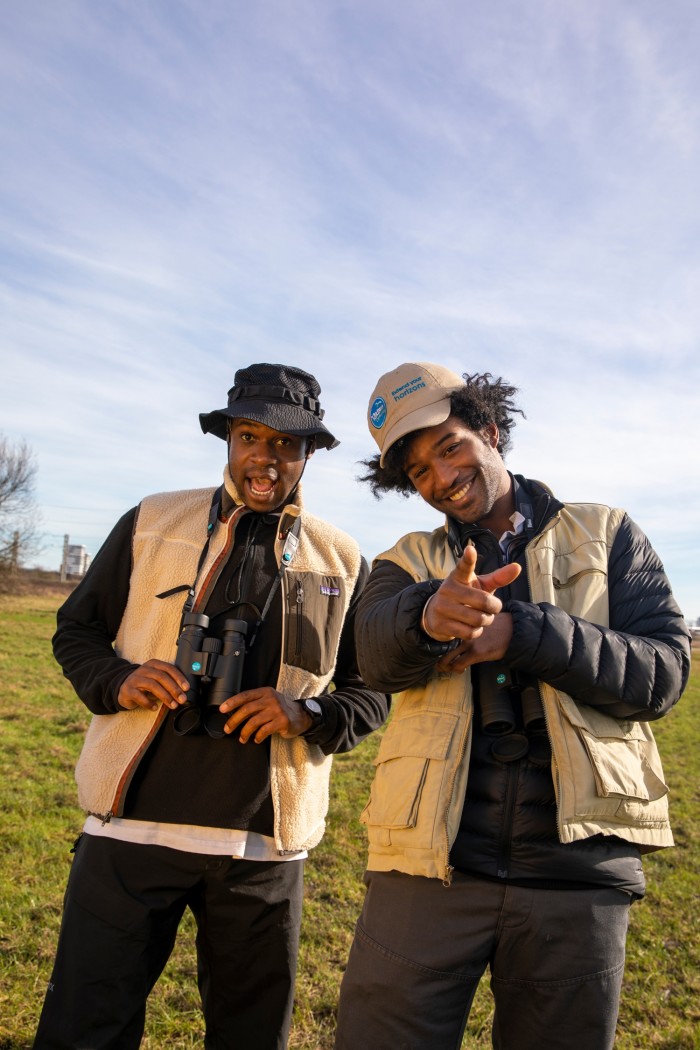
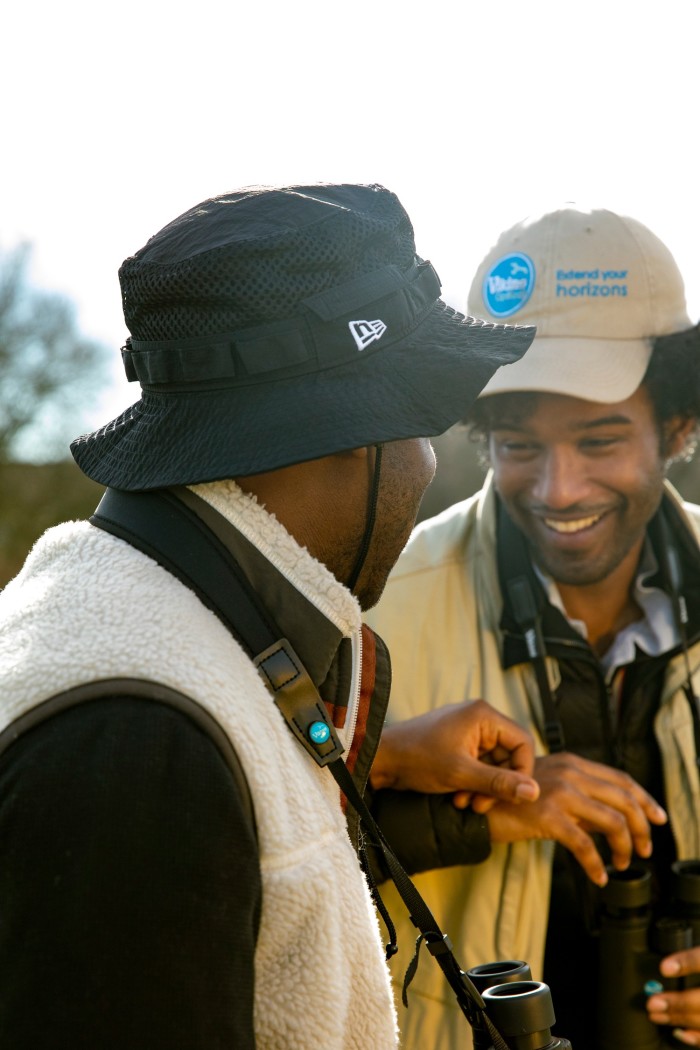
Perera discovered birdwatching aged 15 in east London but struggled to get friends to join him: “They thought it was an old man thing, a white person’s thing.” He saw it differently. “When we go back to our ancestral countries, our families are accustomed to living in nature,” he explains. Perera has Sri Lankan and Jamaican heritage; Olanipekun’s parents are Nigerian. “But here, the first, second and third generations disconnect from it entirely.” That perspective changed through lockdown. Flock’s debut walk, held last June in the Wetlands, was attended by 15 people. Today, the organisation is oversubscribed and struggling to keep up with demand. Around 70 per cent of Flockers are women.
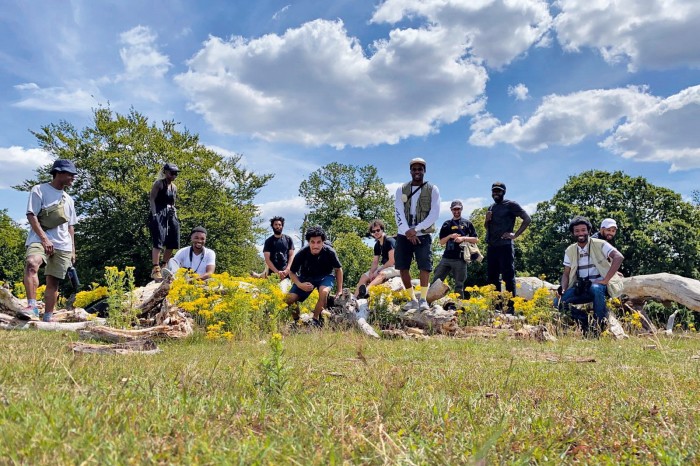
This summer sees Flock launch in Manchester, and migrate internationally to Tokyo, Toronto, Paris, Copenhagen and New York. The duo is also writing a book – a manual for the great outdoors. “We’re ambitious,” says Olanipekun, who is the creative brains behind Flock (Perera heads up the educational aspect). “We want a chapter in every city in the world.” Other projects include a partnership with Timberland; a starring role in the Gucci x The North Face campaign; and a six-part birdwatching series for the BBC’s The One Show.
Each of these projects upholds Flock’s six key pillars – from ecological protection to mental health. The partnership with Timberland gives a platform to young spoken-word artists – “POC kids who had never worked with brands”, says Olanipekun – and evolved from the tradition of holding a reading during walks. “It’s about showing that there’s not one way to be in nature,” says Perera. The Gucci x The North Face campaign aimed to appeal to a younger demographic. “We need to help kids see nature as a space for them – for healing, for inspiration, because the youth clubs are long gone,” says Olanipekun. Through Gucci, Flock is “speaking their language”, adds Perera. Crucially, there’s no barrier for entry: access to nature is free.
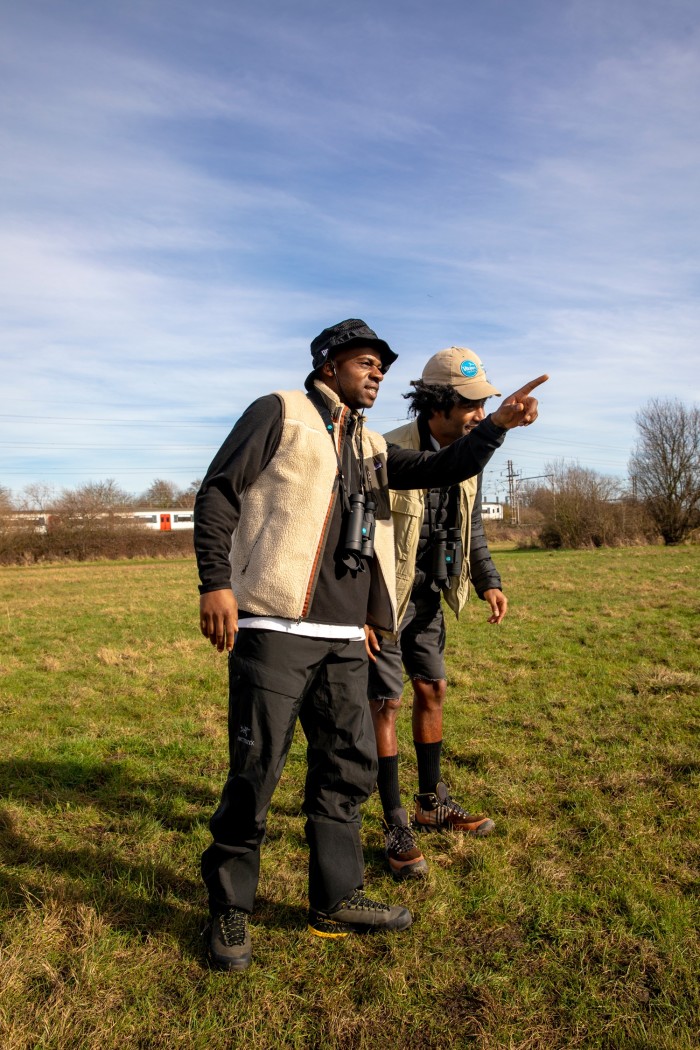
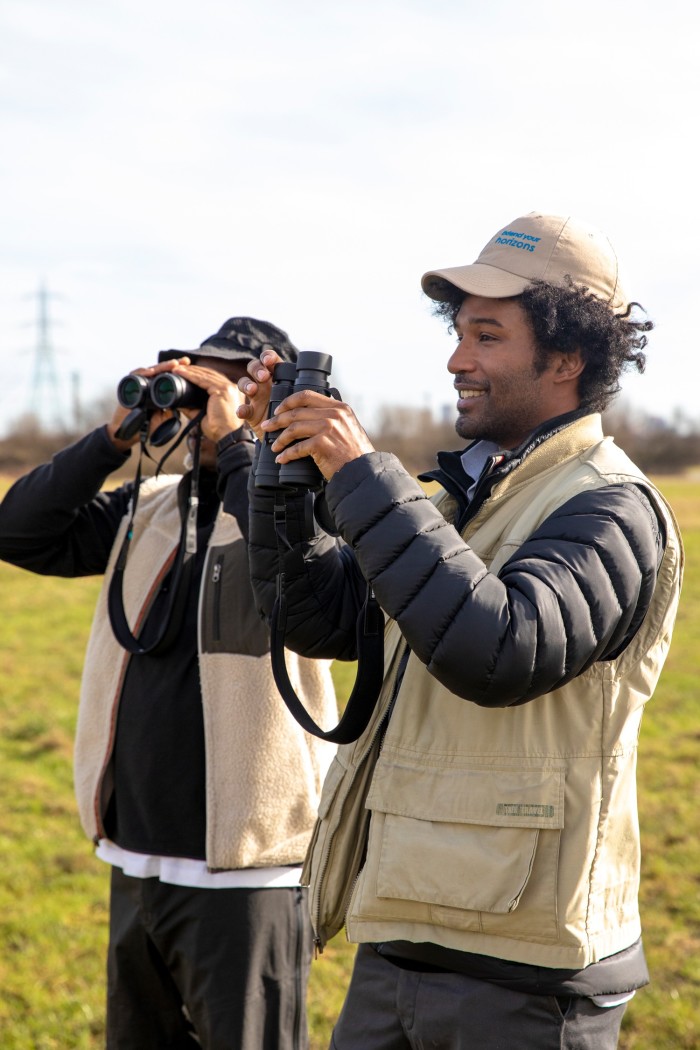
This youth focus will culminate in the Flock Academy, a birdwatching and outdoor programme with schools in underprivileged areas. Launching later this year, it’s sponsored by Canadian outdoor brand Arc’teryx and will be hosted by the London Wildlife Trust. “In the next 15 to 20 years, we want to have a new wave of naturalists coming from this capital,” says Perera.
“We’re at a critical point for saving the planet,” says Olanipekun. “The same people have been saying the same things to the same people for decades. Do you know what’s missing? Extending that to a new demographic. We need new thinkers, and that’s what we’re hoping to unlock.”
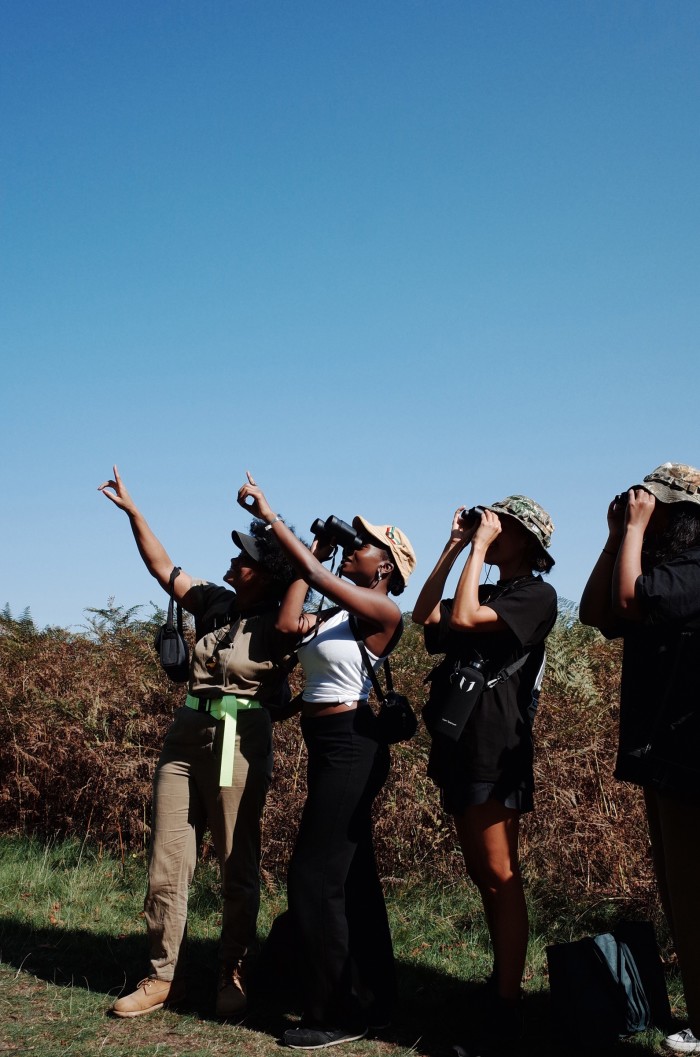
Eventually, Olanipekun and Perera want Flock to have its own reserve to further promote diversity – in the UK, there are currently no people of colour at the helm of any conservation charities. They also want to open up the organisation by hosting art installations and intimate music events. But it’s the meditative tranquillity found within birdsong that they’d hope would be the real draw. “No matter what’s going on in life...the birds have always been singing,’’ says Perera, glancing through his binoculars at the water’s edge. “It’s just that now people have finally stopped to listen.”
Comments